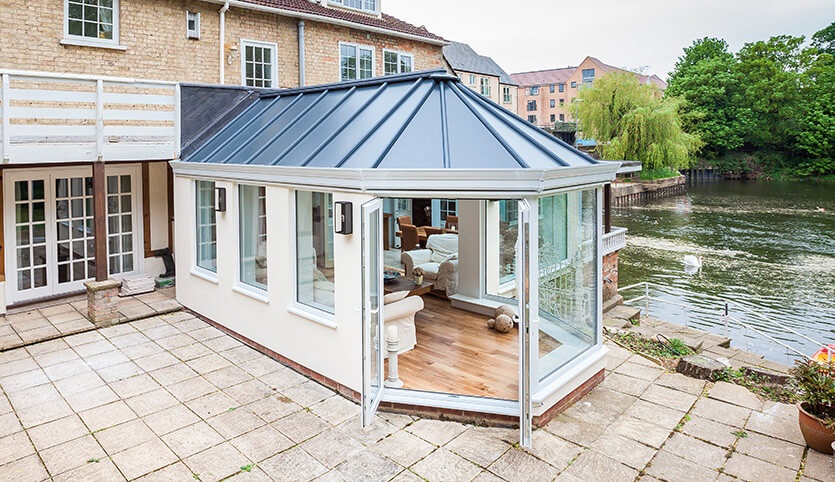
Our first conservatory style is the Victorian conservatory. These traditional style conservatories have a very distinctive look with their three facades and steeply pitched roof, making them ideal for period properties.
Our second type of conservatory is the Edwardian conservatory. They are very similar to Victorian conservatories but have a flat front rather than a bay front.
The third type of conservatory is the Lean-to or Mediterranean Conservatory. This has a simple and clean design that works well with modern buildings and homes.
Our fourth type of conservatory is the P-Shaped or T-Shaped Conservatories. These conservatories combine two styles to give you a larger space, so you can use it for multiple purposes.
Our fifth type of conservatory is the Lantern roof/K2 roof Conservatories. This modern style roof allows for more light into your home, making it more practical for use through a conservatory can be a great addition to your home, both in terms of adding value to your property and giving you an extra space to enjoy. But it can be difficult to know where to start when it comes to choosing which conservatory is right for you. To know more about the conservatories click here to read more.
There are lots of different styles of conservatories, but the most common shapes are Victorian, Edwardian, Lean-To and Gable-End. Each shape has its own benefits and drawbacks, so it’s important that you take the time to think about what would suit your home best.
Before you make any decisions about shape, you’ll also need to decide whether you want a dwarf wall, full height or glass conservatory out the year.
A conservatory can be a great addition to your home, both in terms of adding value to your property and giving you an extra space to enjoy. But it can be difficult to know where to start when it comes to choosing which conservatory is right for you.
There are lots of different styles of conservatories, but the most common shapes are Victorian, Edwardian, Lean-To and Gable-End. Each shape has its own benefits and drawbacks, so it’s important that you take the time to think about what would suit your home best.
Before you make any decisions about shape, you’ll also need to decide whether you want a dwarf wall, full height or glass conservatory.
PVCu windows are easy to maintain and energy efficient. They will not rot, warp or corrode and can be used in any type of property. PVCu windows are resistant to sunlight so they don’t fade, unlike timber products which require regular maintenance.
Wooden windows offer a traditional appearance and can be painted in an array of colours. Timber is a good insulator and wooden windows offer a high degree of sound insulation. Timber can warp or rot if it isn’t properly maintained by painting or staining on a regular basis.
Aluminium windows are strong, durable and low maintenance. They do not rust, warp or rot and last for decades with very little maintenance. Aluminium window frames are poor insulators and more expensive than other materials but are highly secure and attractive.
